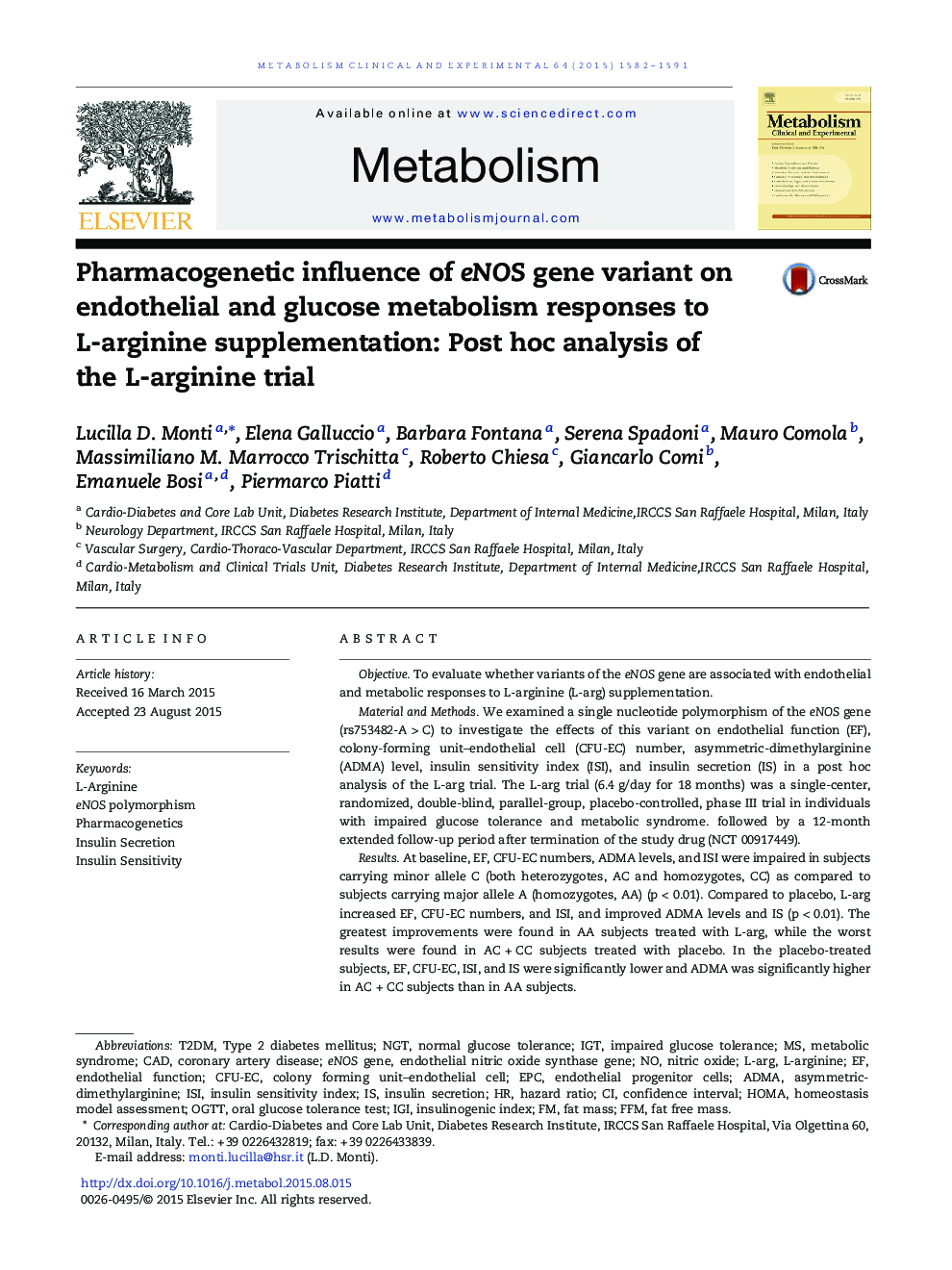| Article ID | Journal | Published Year | Pages | File Type |
|---|---|---|---|---|
| 2805385 | Metabolism | 2015 | 10 Pages |
ObjectiveTo evaluate whether variants of the eNOS gene are associated with endothelial and metabolic responses to L-arginine (L-arg) supplementation.Material and MethodsWe examined a single nucleotide polymorphism of the eNOS gene (rs753482-A > C) to investigate the effects of this variant on endothelial function (EF), colony-forming unit–endothelial cell (CFU-EC) number, asymmetric-dimethylarginine (ADMA) level, insulin sensitivity index (ISI), and insulin secretion (IS) in a post hoc analysis of the L-arg trial. The L-arg trial (6.4 g/day for 18 months) was a single-center, randomized, double-blind, parallel-group, placebo-controlled, phase III trial in individuals with impaired glucose tolerance and metabolic syndrome. followed by a 12-month extended follow-up period after termination of the study drug (NCT 00917449).ResultsAt baseline, EF, CFU-EC numbers, ADMA levels, and ISI were impaired in subjects carrying minor allele C (both heterozygotes, AC and homozygotes, CC) as compared to subjects carrying major allele A (homozygotes, AA) (p < 0.01). Compared to placebo, L-arg increased EF, CFU-EC numbers, and ISI, and improved ADMA levels and IS (p < 0.01). The greatest improvements were found in AA subjects treated with L-arg, while the worst results were found in AC + CC subjects treated with placebo. In the placebo-treated subjects, EF, CFU-EC, ISI, and IS were significantly lower and ADMA was significantly higher in AC + CC subjects than in AA subjects.ConclusionsTreatment with L-arg induced similar improvements in EF, CFU-EC numbers, ADMA levels, ISI, and IS in both AA subjects and AC + CC subjects. The presence of minor allele resulted in the worst prognosis in terms of EF, CFU-EC numbers, ADMA levels, ISI, and IS during the 30-month observation period.
